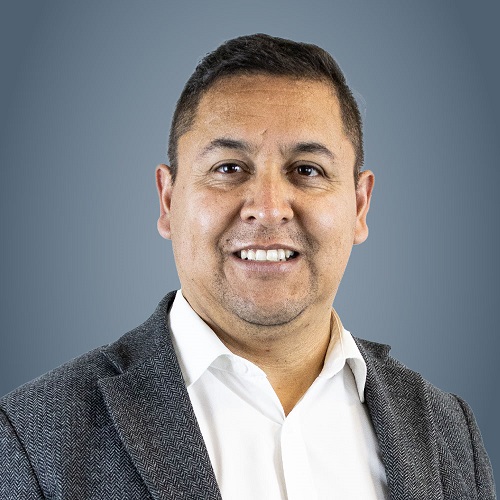DISCIPLINARY BACKGROUND
Why study the Master in Information Technologies for Education?
The Master in Information Technologies for Education (MTIE) serves a priority sector in society, the teacher, whose performance directly impacts the social, economic and political development of a country, being a constant concern the training of teachers at the national and international level. For this reason, a fundamental objective of the MTIE is to train its students in the use of Information and Communication Technologies, as well as in didactic and evaluation techniques that favor the teaching and learning processes they use in their teaching practice.
It offers a training of excellence for professionals dedicated to teaching or interested in it, which focuses on the technological and didactic aspects of teaching practice, in order to contribute to their training to develop a quality teaching-learning process.
Unique qualities
It is a face-to-face professionalizing graduate program with a totally practical orientation, which facilitates the acquisition of the necessary knowledge to incorporate technology in educational processes and the development of the corresponding skills.
Each result of the courses taken contributes to the Terminal Project with which students graduate, which has a direct impact on an almost simultaneous graduation and graduation.
- To develop in the students the adequate use of information technologies through the knowledge and integration of the theoretical and practical elements that allow them to design educational materials for efficient learning and teaching processes.
- To provide the necessary competencies for the design and application of innovations in the use of technology where tools for the management and retrieval of information are integrated as a resource for the improvement of educational processes.
- To provide the tools and theoretical and practical knowledge to be able to integrate the activities of the teaching and learning process in a learning management platform, which is conducive to control and monitor these activities.
The lines of Knowledge Generation and Application, on which this educational program is based, are the following:
- Educational Software Development with Multimedia and Virtual Reality Techniques.
- Curriculum, Pedagogical Innovation and Training.
These lines are directly linked to the disciplinary or training areas because they address the topics included in these areas.
The first area articulates the training for the design of educational materials from software, alternative evaluation techniques with the use of information technologies, as well as the management of Learning Management systems.
The second area is an approach to the use of the most advanced information technologies and has been named in the curricular structure as the area of Technological Innovation where students will be trained for the development of learning objects with the use of tools for the development of educational materials, multimedia and virtual reality systems.
The third training area is designed so that students can develop their final project and is where they will be supported with strategies and methodological tools.
Basic Academic Core
Composed of 13 research professors with master's and doctoral degrees.
- Alonso-Lavernia M. A., Martínez-Lazcano V., Castillo-Pérez I., Muñoz-Sánchez Y. (2019) "Learning Objects Evaluation from User's Perspective" in Information Technology and Systems: Á. Rocha et al. (Eds.): ICITS 2019, AISC 918, pp. 1-12, 2019. https://doi.org/10.1007/978-3-030-11890-7_75. Springer Nature Switzerland AG.
- Verónica Martínez-Lazcano, Yira Muñoz-Sánchez, Iliana Castillo-Pérez. (2019) "Innovation and educational technology" Ingenio y CONciencia. Boletín Científico de la Escuela Superior de Ciudad Sahagún (ISSN 2007-784X), Vol. 6, No. 11. DOI: https://doi.org/10.29057/ess.v6i11.
- Yira Muñoz-Sánchez, Martin Ortiz-Domínguez, Verónica Martínez-Lazcano, Arturo Cruz-Avilés. (2019) "Mastering the instructional design process: a systematic approach." Ingenio y CONciencia. Scientific Bulletin of the Escuela Superior de Ciudad Sahagún (ISSN 2007-784X), Vol. 6, No. 11. DOI: https://doi.org/10.29057/ess.v6i11.3749.
- Claudia Isabel Martínez Alcalá, Alejandra Rosales-Lagarde, María de los Ángeles Alonso Lavernia, José Ángel Ramírez Salvador, Brenda Jiménez Rodríguez, Rosario Monzerrat Cepeda Rebollar.(2018) "Digital Inclusion in Older Adults." Frontiers in ICT, Human-Media Interaction, Editor: Dina Di Giacomo28 August 2018. Switzerland. Electronic ISSN: 2297-198X https://www.frontiersin.org/articles/10.3389/fict.2018.00021/full. https://doi.org/10.3389/fict.2018.00021.
- Claudia I. Martínez-Alcalá, Alejandra Rosales-Lagarde, Esmeralda Hernandez-Alonso, Roberto Melchor-Agustin. (2018) "A Mobile App (iBeni) With a Neuropsychological Basis for Cognitive Stimulation for Elderly Adults: Pilot and Validation Study". JMIR Research Protocols, 2018;7(8):e172. DOI: 10.2196/resprot.9603.
- Claudia I. Martínez-Alcalá, José A. Ramírez-Salvador, Alejandra Rosales-Lagarde, Brenda Jiménez-Rodríguez. (2018) "Assistance and Support of Primary Caregivers through an eService Platform. Journal of Information System Engineering and Management," 2018;3:1. doi: https://doi.org/10.20897/jisem.201809. eISSN: 2468-4376.
- Joel Suárez-Cansino, Anilú Franco-Árcega, Linda Gladiola Flores-Flores, Virgilio López-Morales and Ruslan Gabbasov. (2018) "A Time Complexity Analysis to the ParDTLT Parallel Algorithm for Decision Tree Induction", 17th Mexican International Conference on Artificial Intelligence, MICAI 2018", Guadalajara, Mexico. DOI: 10.1007/978-3-030-04491-6_19.
- Lauro Vargas Ruiz, Anilu Franco-Arcega and María de Los Angeles Alonso. (2018) "A novel criterion to obtain the best feature subset from filter ranking methods". LNCS: 11th Mexican Conference on Pattern Recognition (MCPR-2019), Volume 10880, pp 12-22 Editors: Martínez-Trinidad J., Carrasco-Ochoa J., Olvera-López J., Sarkar S. Querétaro, Mexico. https://doi.org/10.1007/978-3-319-92198-3_2. Print ISBN 978-3-319-92197-6. Online ISBN978-3-319-92198-3. Springer Cham.
- Leonardo Di G. Sigalotti, Fidel Cruz, Ruslan Gabbasov, Jaime Klapp, José Ramírez-Velasquez. (2018) "From Large-scale to Protostellar Disk Fragmentation into Close Binary Stars," ApJ 857, 40.
- María de los Angeles Alonso & Argelio V. de la Cruz (2018) IsyLet: A platform for learning management with knowledge-based resources. In: Montes de Oca C., García J. F., Orozco E(eds). Proceedings of the EduAction Miami 2018 International Conference. Humboldt International University, Florida, USA. Pp. 312-324. ISBN: 978-0-9915776-7-5. Library of Congress Control Number: 2018951479. First edition.
- P. Repetto, Eric E. Martínez-García, M. Rosado, R. Gabbasov. (2018) "General circular velocity relation of a test particle in a 3D gravitational potential: application to the rotation curves analysis and total mass determination of UGC 8490 and UGC 9753", MNRAS 477, 678.
- Ramirez-Velasquez J.M., Sigalotti L. Gabbasov R., Cruz F., Klapp J. (2018) "Impetus: consistent SPH calculations of 3D spherical Bondi accretion on to a black hole", 2018, MNRAS, 477, 4308.
- Rubén Hernández-Pérez, Ruslan Gabbasov, Joel Suárez-Cansino, Virgilio López-Morales and Anilu Franco-Árcega. (2018) "Efficiency Analysis of Particle Tracking with Synthetic PIV using SOM". 17th Mexican International Conference on Artificial Intelligence, MICAI 2018", Guadalajara, Mexico. DOI: 10.1007/978-3-030-04491-6_11
- Rosales-Lagarde A., Rodríguez-Torres EE., Itzá-Ortiz BA., Miramontes P., Vázquez-Tagle G., Enciso-Alva JC., García-Muñoz V., Cubero-Rego L., Pineda-Sánchez JE., Martínez-Alcalá CI. and Lopez-Noguerola JS. (2018) "The Color of Noise and Weak Stationarity at the NREM to REM Sleep Transition in Mild Cognitive Impaired Subjects". Frontiers Psychology 9:1205. doi: 10.3389/fpsyg.2018.01205.
- Verónica Martínez Lazcano, Yira Muñoz Sánchez, Iliana Castillo Pérez. (2018) "Criteria for the evaluation of learning objects in pedagogical, didactic and/or technological assessments". Ingenio y CONciencia. Boletín Científico de la Escuela Superior de Ciudad Sahagún (ISSN 2007-784X), Vol. 5, No. 10. DOI: https://doi.org/10.29057/ess.v5i10.3329.
- Virgilio López-Morales, Joel Suarez-Cansino, Ruslan Gabbasov and Anilu Franco-Arcega. (2018) "A General Method for Consistency Improving in Decision-Making Under Uncertainty", 17th Mexican International Conference on Artificial Intelligence, MICAI 2018", Guadalajara, Mexico. DOI:10.1007/978-3-030-04491-6_33.
- Verónica Martínez Lazcano, Yira Muñoz Sánchez, Iliana Castillo Pérez. (2018) "Types of assessments in the evaluation of learning objects". Ingenio y CONciencia. Boletín Científico de la Escuela Superior de Ciudad Sahagún (ISSN 2007-784X), Vol. 5, No. 10. DOI: https://doi.org/10.29057/ess.v5i10.3335.
- Verónica Martínez Lazcano, Yira Muñoz Sánchez, Iliana Castillo Pérez "Tipos de saberes en la Enseñanza por Competencias". Ingenio y CONciencia. Boletín Científico de la Escuela Superior de Ciudad Sahagún (ISSN 2007-784X), Vol. 5, No. 9. DOI: https://doi.org/10.29057/ess.v5i9.2912.
- Verónica Martínez Lazcano, Yira Muñoz Sánchez, Iliana Castillo Pérez. "Characteristics of Learning Objects." Ingenio y CONciencia. Boletín Científico de la Escuela Superior de Ciudad Sahagún (ISSN 2007-784X), Vol. 5, No. 9. DOI: https://doi.org/10.29057/ess.v5i9.2909.
- Alejandra Rosales-Lagarde, Claudia I. Martínez-Alcalá, Patricia Pliego-Pastrana, Eva M. Molina-Trinidad, José-Luis Díaz. (2017) "Bizarreness and emotion identification using Grete Stern photomontages: gender and age disparities". Frontiers in Psychology. 2017; 8:414. doi:10.3389/fpsyg.2017.00414.
- Cruz-Guerrero, René, Alonso-Lavernia Ma. de los Ángeles, Franco-Árcega, Anilu. (2017) "Study of the behavior of classification algorithms according to the nature of the data". Journal of Information Technology. Editorial ECORFAN. Volume 1, Issue 2. Pp. 9-18. July to September - 2017. ISSN: 2531-2197. ECORFAN-Spain. http://www.ecorfan.org/spain/researchjournals/Tecnologia_Informatica/vol1num2/Revista_de_Tecnologia_Informatica_V1_N2.pdf.
- Fernández López M., Zapata L. A., Gabbasov R. (2017) "Strongly Misaligned Triple System in SR 24 Revealed by ALMA", ApJ, 845, 10.
- Gabbasov R., Leonardo Di G. Sigalotti, Fidel Cruz, Jaime Klapp, Jose M. Ramirez-Velasquez. (2017) "Consistent SPH Simulations of Protostellar Collapse and Fragmentation," ApJ, 835 (2), 287.
- Hernández, M.L., Olguín, E., & Samperio (2017). C. MOOC-CODAES Education. Memorias Séptimo Congreso Virtual Iberoamericano de Calidad en Educación Virtual y a Distancia. Mendoza, Argentina.
- Lozano-Ruiz Mercedes Guadalupe, Alonso-Lavernia María de los Ángeles, Martínez-Lazcano Verónica and Bolaños-Rodríguez, Ernesto. (2017) "Web Application to Support Classroom Planning, Delivery and Evaluation Processes". Journal of Educational Systems and Management. Editorial ECORFAN-Bolivia, Volume 4 Number 12. pp. 10-22. ISSN: 2410-3977. July-sept 2017. http://www.ecorfan.org/bolivia/researchjournals/Sistemas_y_Gestion_Educativa/vol4num12/Revista_de_Sistemas_y_Gestion_Educativa_V4_N12.pdf.
- Martín Ortiz Domínguez, Arturo Cruz Avilés, Yira Muñoz Sánchez. (2017) "Reduvolution making the revolution in education". Ingenio y CONciencia. Scientific Bulletin of the Escuela Superior de Ciudad Sahagún (ISSN 2007-784X), Vol. 4, No. 8. DOI: https://doi.org/10.29057/ess.v4i8.2365.
- P. Repetto; Eric E. Martinez-Garcia; M. Rosado; R. Gabbasov. (2017) "Mass Content of UGC 6446 and UGC 7524 through HI rotation curves: deriving the stellar discs from stellar population synthesis models", MNRAS 468, 180.
- René Cruz Guerrero, Ma. de los Ángeles Alonso Lavernia and Anilu Franco Árcega. (2017) "Hybrid Predictive and Recommendation Modeling with Data Mining and Artificial Intelligence Techniques". Revista Programación Matemática y Software. Editorial Universidad Autónoma de Morelos. Volume 9, Number 3. Págs. 18-24. ISSN: 2007-3283.
- Yira Muñoz Sánchez, Verónica Martínez Lazcano, Iliana Castillo Pérez. (2017) "Environment of Learning Objects." Ingenio y CONciencia. Scientific Bulletin of the Escuela Superior de Ciudad Sahagún (ISSN 2007-784X), Vol. 4, No. 7. DOI: https://doi.org/10.29057/ess.v4i7.2059.
- Yira Muñoz Sánchez, Verónica Martínez Lazcano, Iliana Castillo Pérez. (2017) "Learning Objects in Mexico." Ingenio y CONciencia. Scientific Bulletin of the Escuela Superior de Ciudad Sahagún (ISSN 2007-784X), Vol. 4, No. 7. DOI: https://doi.org/10.29057/ess.v4i7.2057.
- Claudia I. Martínez-Alcalá, Patricia Pliego-Pastrana, Alejandra Rosales-Lagarde, JS Lopez-Noguerola, Eva M. Molina-Trinidad. (2016) "Information and Communication Technologies in the Care of the Elderly:Systematic Review of Applications Aimed at Patients With Dementia and Caregivers". JMIR Rehabilitation and Assistive Technologies 2016; 3:1. Doi: 1 http://rehab.jmir .org/2016/1/e6/.
- Flor Liliana Hernández Saldivar, Jaime Muñoz Arteaga, Héctor Cardona Reyes and María de los Angeles Alonso Lavernia. (2016) "Proceso para asistir a la Lectura para Niños de Educación Básica utilizando las TIC". CcITA'2016- VII International Conference on Technologies and Learning, Universidad Nacional Abierta y a Distancia de México, Mexico. Chapter of the book La Tecnología como instrumento para potenciar el aprendizaje. Pp. 100-107 ISBN: 978-1533431110.
- Hernández, M. L. and Pérez, M. (2016) "Comparability of Studies: normative case of the Virtual University System of the Autonomous University of the State of Hidalgo. Trends and Challenges in educational innovation: an open debate". Universidad Veracruzana.
- José M. Ramírez-Velasquez, Jaime Klapp, Ruslan Gabbasov, Fidel Cruz, Leonardo Di G. Sigalotti. (2016) "Impetus: New Cloudy's Radiative Tables for Accretion onto a Galaxy Black Hole," 2016, ApJSS, 226, 22.
- Marisol Maldonado Sánchez, María de los Ángeles Alonso Lavernia(2016) "Sistema de Planeación de clases con técnicas de Evaluación". Tecnología Educativa Revista CONAIC. Volume III, Number 1, 2016. http://conaic.net/revista/publicaciones/TE_Vol3_Num1_2016.pdf.
- Martínez Lazcano V., Montaño Montiel M., Alonso Lavernia M. A. (2016) "Portal Web como Medio de Consulta de Software de Aplicación para el Desarrollo de Materiales Educativos en el Programa de la Maestría en Tecnologías de la Información para la Educación de la UAEH". Pista Educativas Magazine ISSN 1405-1249. Págs. 421-440.
- Ramírez-Salvador, José A., Martínez-Alcalá, Claudia I., Alonso-Lavernia M. A. (2016) "Modeling Workflows oriented to collaborative Portals in education". CISTI'2016 - 11th Iberian Conference on Information Systems and Technologies, Canary Islands, Spain.
- Yira Muñoz Sánchez. (2016) "Engineering of Learning: Conceptualizing e.Didactics". Ingenio y CONciencia. Scientific Bulletin of the Escuela Superior de Ciudad Sahagún (ISSN 2007-784X), Vol. 3, No. 6. DOI: https://doi.org/10.29057/ess.v3i6.356.
- Yira Muñoz Sánchez. (2016) "Full on Learning; involve me and I'll understand". Ingenio y CONciencia. Scientific Bulletin of the Escuela Superior de Ciudad Sahagún (ISSN 2007-784X), Vol. 3, No. 5. DOI: https://doi.org/10.29057/ess.v3i5.1392.
- Yira Muñoz Sánchez. (2016) "Learning to Learn with Integrative Learning Technologies." Ingenio y CONciencia. Scientific Bulletin of the Escuela Superior de Ciudad Sahagún (ISSN 2007-784X), Vol. 3, No. 5. DOI: https://doi.org/10.29057/ess.v3i5.1394.
- Alonso, M.A., Martínez, L, Castillo, I., Pozas, M.J., Muñoz, Y. (2015) "Desarrollando competencias digitales en los docentes" XI Semana Nacional de Ingeniería Electrónica Pistas Educativas, No. 112, November 2015. Mexico, Instituto Tecnológico de Celaya. http://pistaseducativas.itc.mx/wp-content/uploads/2015/10/26_Maria_de_los_Angteles_Alonso_Levernia_112.pdf.
- P. Repetto; Eric E. Martinez-Garcia; M. Rosado; R. Gabbasov. (2015) "Outer and inner mass distributions of the irregular galaxies UGC 4284 and UGC 11861: constraining the baryonic content through stellar population synthesis studies", MNRAS, 451, 4872.
- Yira Muñoz Sánchez. (2015) "The Learning Powered School: Pioneering 21st Century Education." Ingenio y CONciencia. Scientific Bulletin of the Escuela Superior de Ciudad Sahagún (ISSN 2007-784X), Vol. 2, No. 3. DOI: https://doi.org/10.29057/ess.v2i3.1366.
- Alonso Lavernia M. A., Martínez Lazcano V., Castillo Pérez I., Muñoz Sánchez Y. (2014) "Centro de Innovación para el Desarrollo y la Capacitación de Materiales Educativos (CIDECAME)". Technical Report of Research and Technological Development Project. IT.PIyDT.001.11.14.
- Gabbasov R., Fuentes-Carrera I., Rosado M. (2014) "An interaction scenario of the galaxy pair NGC 3893/96: A single passage?" ApJ, 787, 39.
- Hernández, M. L., Pérez, M. & González, E. (2014). Study of Expectations and Access to the Virtual Modality. Revista Tlamati, special issue 3 CICOM.
- Juan Carlos Luna-Sánchez, M.A. Rodríguez-Meza, A. Arrieta, R. Gabbasov. (2014) "Bar formation in simulations of interacting galaxies", J. Phys. Conf. Ser. 545, 012008.
- Martínez Lazcano V., Alonso Lavernia M. A., Castillo Pérez I., Muñoz Sánchez Y. (2014) "Technical and User Manuals of the Learning Objects: Statistical Graphics and Geometry Activities in Ardora". Technological Development Technical Report. IT.DT.001.12.14.
- Yira Muñoz Sánchez. (2014) "Estrategias didácticas." Ingenio y CONciencia. Boletín Científico de la Escuela Superior de Ciudad Sahagún (ISSN 2007-784X), Vol. 1, No. 1. DOI: https://doi.org/10.29057/ess.v1i1.1343.
- J. Zuno-Silva, Y. Muñoz-Sánchez, J.A. Medina-Salazar, L.D. Sánchez-Doniz.(2014) "The Chemistry of the Mechanical Engineer." Ingenio y CONciencia. Boletín Científico de la Escuela Superior de Ciudad Sahagún (ISSN 2007-784X), Vol. 1, No. 2. DOI: https://doi.org/10.29057/ess.v1i2.1355.
- Claudia Atala Trejo García, Gabriela Maldonado Muñiz, Salvador M. Camacho y López, Yira Muñoz Sánchez, Sandra Alhelí Ramírez Cruz. (2014) "Objetos de aprendizaje como estrategia del proceso enseñanza aprendizaje del: "proceso atención de enfermería - etapa valoración" (Learning objects as a strategy for the teaching-learning process of: "nursing care process - assessment stage". XIKUA. Boletín Científico de la Escuela Superior de Tlahuelilpan (ISSN 2207-4948), Vol. 2, No. 3. DOI: https://doi.org/10.29057/xikua.v2i3.1235.
- Arturo Curiel Anaya, Mariano Javier Pozas Cárdenas, David Hernández Sánchez, (2016), "Metodología DECADE/COM", Avances en las Tecnologías de la Información, Alfa-Omega, ISBN: 978-607-622-834-0, Mexico, Pag. 54-66.
- Juan Alberto Acosta Hernández, Anna Tarasenko, Miriam Martínez Vazquez, Arturo Curiel Anaya,(2017) "Las Representaciones Sociales Mostradas a través de un MOOC de Precalculo", NovusCientífica, Volume 4, Number 1, ISSN: 2395-9932, Mexico, Pag 34-58.
- Juan Alberto Acosta Hernández, Arturo Curiel Anaya, Anna Tarasenko, Mariano Javier Pozas Cárdenas, David Hernández Sánchez, (2017), "Desarrollo de un MOOC de Pre-cálculo, como un apoyo al programa de Licenciatura en Ciencias Computacionales , en el ICBI-UAEH", El Profesional de TIC y la Transdisciplinariedad, Alfa-Omega, ISBN: 978-607-622-68-0, México, pag. 152-159.
- Juan Alberto Acosta Hernández, Miriam Martínez Vázquez, Arturo Curiel Anaya, Aarón Reyes Rodríguez, Anna Tarasenko, Carlos Rondero Guerrero, (2018), "Representaciones Sociales Sobre Enseñanza y Aprendizaje que Sostienen Docentes de Nivel Medio Superior y Superior", European Scientific Journal , Vol. 14, No. 25, ISSN 1857 - 7881 Doi: Http://dx.doi.org/10.19044/esj.2018.v14n25pl
- Arturo Curiel Anaya, Mariano Javier Pozas Cárdenas, (2018), "MOOC: Un modelo alterno de enseñanza de las matemáticas", http://scribd.com/presentation/264854417/moocs.
- Arturo Curiel Anaya, Mariano Javier Pozas Cárdenas, David Sánchez Hernández, Alberto Suárez Navarrete, (2019), "Impact of the MOOC Learn to Learn, in high school students of the UAEH". Journal of Teaching and Educational Research, vol 5, No. 15, DOI: 10.35429/JTER.2019.15.5.14.19.
- Alondra Quezada Arquijo, Mariano Javier Pozas Cárdenas, Arturo Curiel Anaya, David Sánchez Hernández, (2021), "Jonassen model in the development of integrative projects". Journal of Technological Development, vol 5, No. 15, DOI: 10.35429/JTD.2021.16.5.13.21
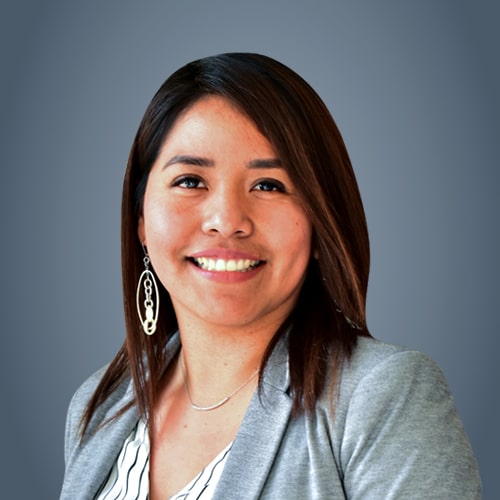
Dr. Claudia Isabel Martínez Alcalá
claudia_martinez@uaeh.edu.mx
PRODEP: Current
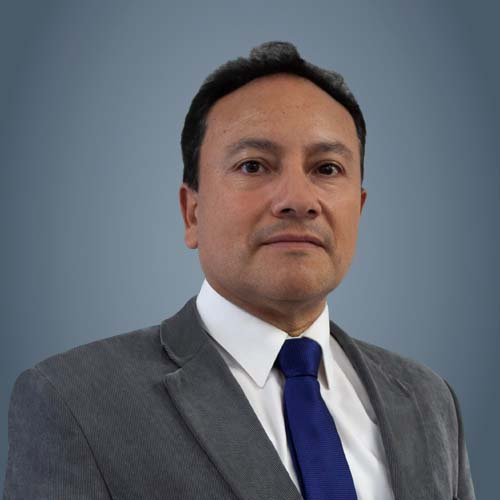
Dr. Edgar Olguín Guzman
eolguin@uaeh.edu.mx
SNII Candidate
PRODEP: Current
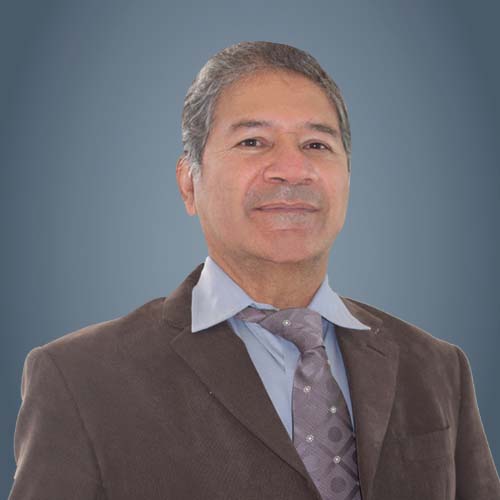
M. en C. Mariano Javier Pozas Cárdenas
mpozas@uaeh.edu.mx
PRODEP: Current
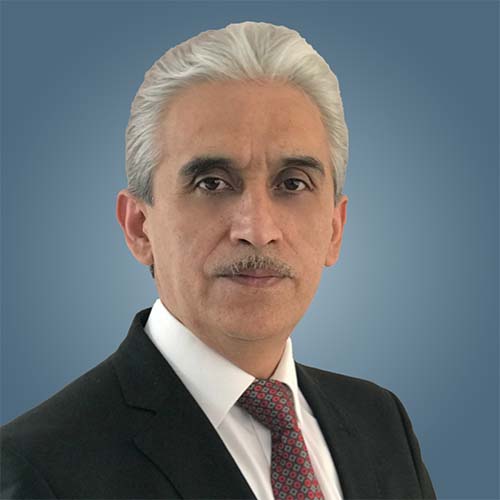
M. en C. Gonzalo Alberto Torres Samperio
torres@uaeh.edu.mx
PRODEP: Current
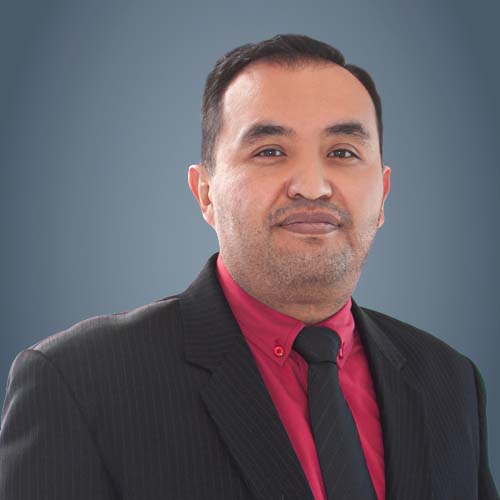
M.I.D Alberto Suárez Navarrete
asuarezn@uaeh.edu.mx
PRODEP: Current
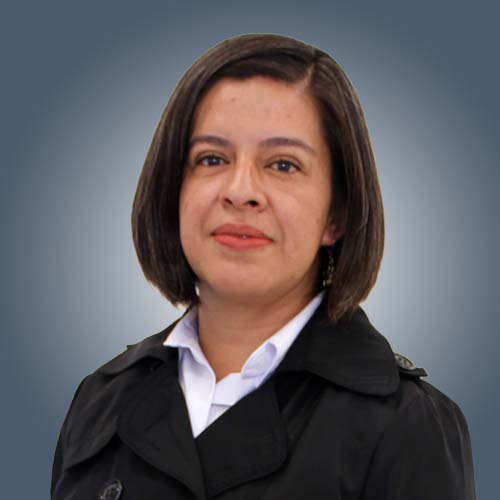
M. en C. Iliana Castillo Perez
ilianac@uaeh.edu.mx
PRODEP: Current
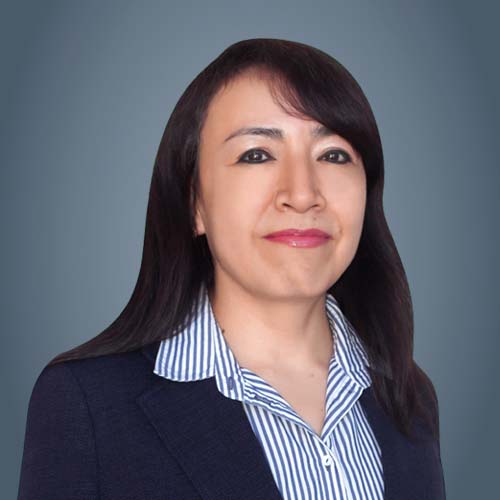
M. en C. Verónica Martínez Lazcano
vlazcano@uaeh.edu.mx
PRODEP: Current
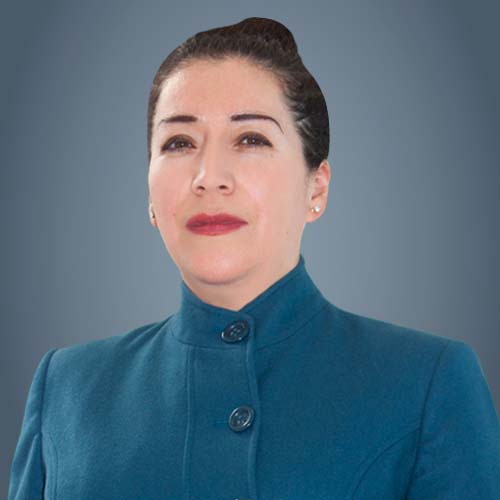
M.I.D. Ma. De Jesús Gutiérrez Sánchez
madejesus_gutierrez@uaeh.edu.mx
PRODEP: Current
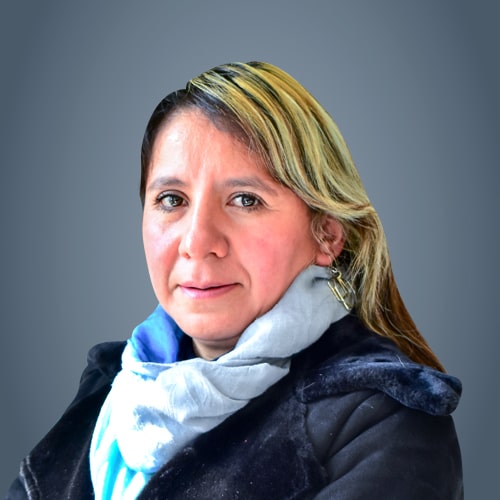
M. en C. Yira Muñoz Sánchez
yira@uaeh.edu.mx
PRODEP: Current
